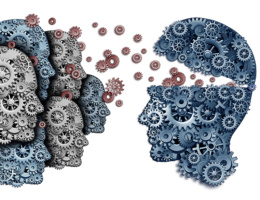
As per the Census Report of 2013, infertility in India has risen by more than 50% since the 1980s. Medically it is believed that approximately 10% of the general population suffers from childlessness. In India this number seems exceedingly large owing to the humungous population.
Causes of Infertility
Both Men & women may suffer from infertility. Following may be few of the reasons for the same. However, quite a few of these can be treated with certain lifestyle adjustments and via correct medical procedures.
Women:
Age: Woman’s fertility begins to diminish by 3% -5% after 30. The reduction in fertility continues with age.
Medical Conditions: Women may suffer from hormonal, cervical or uterine conditions which do not allow the fertilization of her eggs.
Lifestyle Choices:Choices like Smoking and alcohol consumption poses threat of infertility and miscarriage. Smoking during fertility treatment reduces the chance of the treatment actually working.
Eating Disorders: Obesity, anorexia, over & under exercising may result in ovulation problems, which in turn affects the fertility process.
Stress: Studies & researches indicate that mental stress affects the ovulation process resulting in low rate of fertility.
Men:
Age:Fertility reduces eventually overtime with age.
Lifestyle Choices: Regular smoking, alcohol consumption& using chemicals gradually reduces the sperm count in men causing infertility.
Mental Stress: This holds true for both men and women. Sperm counts suffer if the person in question goes through high mental stress.
Treatments
Medicinal: Medical Practitioners may suggest this stand alone or may be alongside assisted conception procedures. Usually medicines are used to control & regularize hormones which control the ovulation process. Thorough discussion regarding the usefulness, duration & side effects of the medicines prescribed with the doctors is essential before starting the course.
Surgical: Certain conditions can be rectified with the assistance of surgery. Situations where the patient is suffering from PCOS (Polycystic Ovary Syndrome), Endometriosis, Fibroids or Fallopian Tube problems could be controlled with surgery.
Assisted Conception: Following are few of the well-known forms of assisted conception. Your doctor would be the best person to give you options and recommendations to ensure best possible results.
- Intrauterine Insemination (IUI) – For this to work best, it is advisable that a complete check up to confirm a healthy fallopian tube is performed prior to any assisted conception process. In this, the donor’s/partner’s sperm are placed in the womb. For better result, it can be synchronized with the ovulation dates.
- In Vitro Fertilization (IVF)–This treatment is majorly suggested in cases of blocked fallopian tube or other unexplained infertility. In this the embryo is fertilized outside of the body in a test tube. Once the embryos are formed, couple of them is inserted in the womb via the cervix.
- Intracytoplasmic Sperm Injection (ICSI) – This is favored by the medical practitioners in cases where the male partner suffers from low sperm count. This technique involves an individual sperm directly injected into the outer layer of the egg (cytoplasm). This neutralizes any natural barriers that might have prevented the egg to be fertilized in normal circumstances.
- team_itemmom
- January 20, 2016
- 0 Comment






